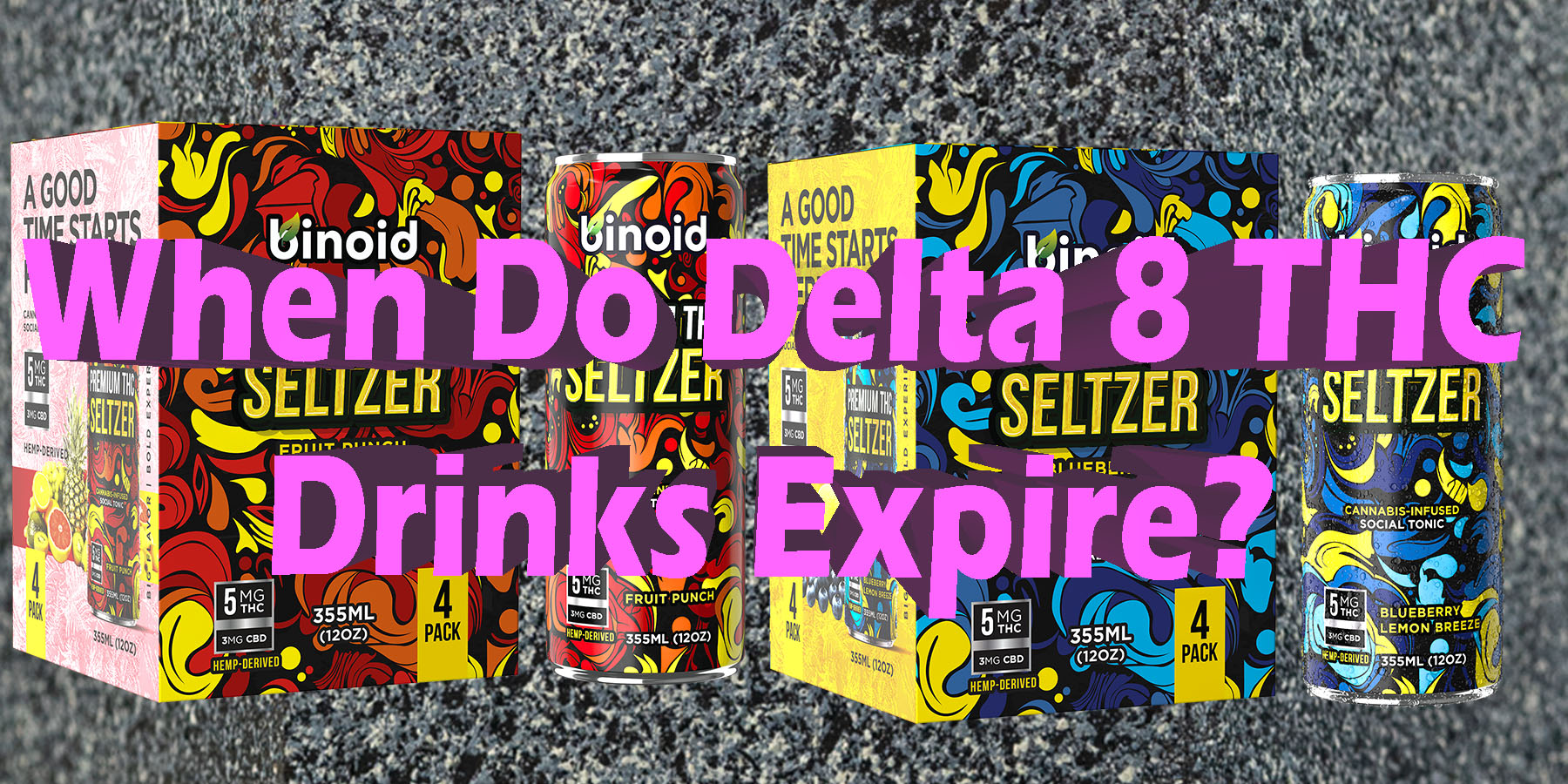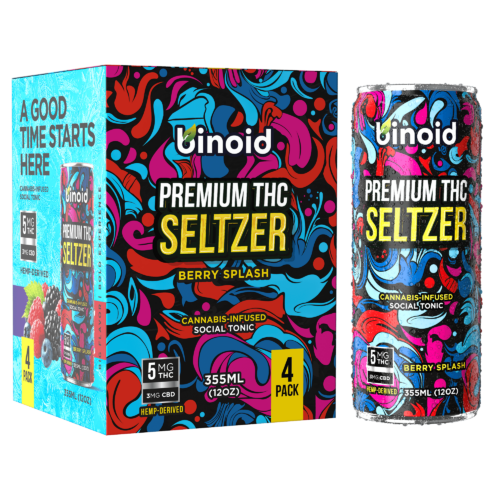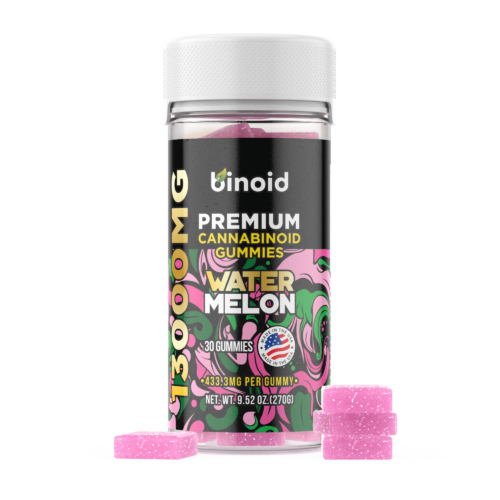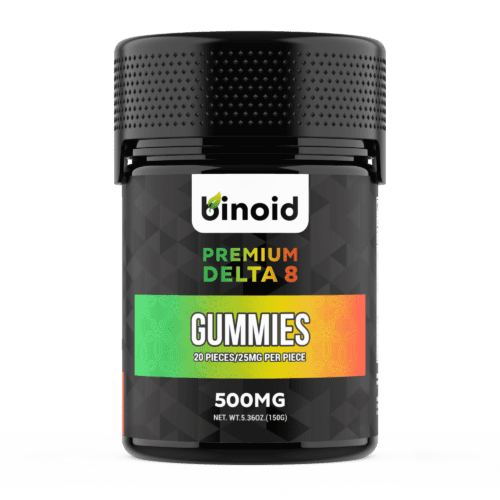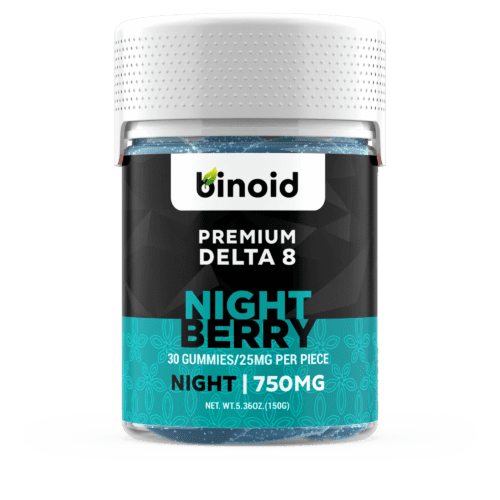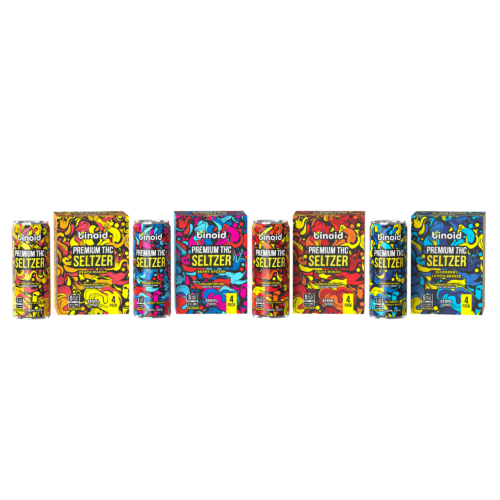In the modern world of curated experiences, we have become connoisseurs of precision, seeking specific outcomes from the products we choose to integrate into our lives. We select a particular strain of coffee for focus, a specific vintage of wine for celebration, and a certain type of herbal tea for tranquility. This desire for predictable effects has found a new and exciting frontier in the world of hemp-derived cannabinoids, especially with Delta 8 THC.
We purchase a can of a crisp Delta 8 seltzer or a bottle of rich Delta 8 lemonade with a clear intention—to access a state of gentle euphoria and clear-headed bliss. But as that can sits, saved for the perfect moment, a critical question begins to form: is there a countdown on that clarity? Does the carefully calibrated magic within that beverage have a finite lifespan, and what happens when it’s over? Understanding the expiration of these products is not just about avoiding a bad taste; it’s about ensuring the experience we seek is the one we actually get.
To Buy Delta 8 THC Drinks Click Here
Recommended products
What are Delta 8 THC Drinks?
Before we can accurately chart the lifespan of these fascinating beverages, it’s crucial to understand their unique composition. At its most fundamental level, a Delta 8 THC drink is a commercially produced, ready-to-drink beverage that has been infused with a precise, measured dose of Delta 8 Tetrahydrocannabinol. Delta 8 THC is a close chemical relative of the more famous Delta 9 THC.
However, a subtle shift in its molecular structure gives Delta 8 its distinct and highly sought-after character—a psychoactive experience that is often described as being more clear-headed, less anxious, and more body-focused. This milder profile has made Delta 8 an incredibly popular choice for a wide range of adults who are mindful of their mental state and seek a more manageable form of euphoria.
The true scientific innovation that makes these drinks possible is the process that allows the naturally hydrophobic (oil-based) Delta 8 extract to be perfectly integrated into a hydrophilic (water-based) liquid. This is achieved through the science of emulsification, where the cannabinoid oil is broken down into microscopic droplets that can be suspended evenly throughout the beverage.
This technology provides a remarkably convenient, smoke-free, and consistent method of consumption, with a level of control and predictability that makes the experience highly approachable. The specific ingredients used in these formulations, and how they interact with the Delta 8 emulsion, are the key factors in determining their overall longevity and shelf stability.
The contemporary market for Delta 8 drinks is a vibrant and rapidly expanding landscape of diverse options. Each category below is defined by its core ingredients and unique production methods, which in turn have a direct impact on its shelf stability and how it ages over time:
Delta 8 THC Seltzers: This category is often considered the gold standard for stability, primarily due to its minimalist and clean ingredient profile. The foundation of a high-quality Delta 8 seltzer is purified, highly carbonated water, which serves as an incredibly stable base. The production process involves infusing this pristine water with a nano-emulsified Delta 8 THC distillate and often includes the addition of subtle, natural fruit essences for flavor. With virtually no sugar or complex organic solids that can spoil or degrade, the primary consideration for their shelf life is the physical integrity of the can and the long-term chemical stability of the cannabinoid emulsion itself.
Delta 8 THC Sodas: These beverages are intentionally designed to replicate the indulgent, sweet, and nostalgic experience of traditional soft drinks and are therefore defined by their significant sugar content. The manufacturing process begins with a classic syrup base composed of water, a substantial amount of a sweetener (like cane sugar or high-fructose corn syrup), and various natural or artificial flavorings. Sugar itself is a powerful natural preservative, which can contribute to a longer shelf life by inhibiting the growth of microbes. A measured dose of Delta 8 THC extract is infused into this robust base before it is carbonated and packaged, making these drinks quite shelf-stable from a safety standpoint.
Delta 8 THC Waters: Delta 8-infused waters are crafted for the ultimate purity and simplicity, often featuring the shortest ingredient list in the entire beverage world. The process typically starts with purified or distilled water, into which a tasteless, colorless, and fully water-soluble Delta 8 THC isolate or distillate is infused. Because these drinks frequently contain no sugar, perishable organic matter, or any other additives that can spoil, they are exceptionally stable from a microbiological perspective. The main concern over an extended period is not spoilage in the traditional sense, but the slow, inevitable degradation of the Delta 8 THC molecule itself due to environmental factors.
Delta 8 THC Lemonade: This universally beloved, classic non-carbonated beverage is typically made from a base of lemon juice, water, and a sweetener. The inclusion of real fruit juice, which contains natural organic compounds, sugars, and enzymes, makes lemonade inherently less stable than a simple seltzer or water. To counteract this, manufacturers often pasteurize the product—a process of gentle heating—to kill any potential microbes and extend its shelf life significantly. The natural acidity from the lemon juice also acts as a helpful preservative, but the overall flavor profile is more susceptible to change over time.
Delta 8 THC Tea: This broad category, which includes both ready-to-drink (RTD) iced teas and brew-at-home tea bags, is defined by its use of organic plant matter. For RTD iced teas, real tea leaves are brewed in large batches, and the resulting liquid is then cooled, often sweetened, and infused with the Delta 8 emulsion. Because brewed tea contains tannins and other complex organic compounds, its flavor can change noticeably over time. Consequently, these products are almost always pasteurized to ensure they are shelf-stable and safe for consumption for many months.
Delta 8 THC Coffee: Similar to tea, Delta 8 coffee products involve organic ingredients that can impact their stability and taste over the long term. For ready-to-drink cold brew products, a large batch of coffee is brewed, cooled, and infused with a precisely dosed Delta 8 THC emulsion. Coffee is naturally acidic, which aids in preservation, and these products are typically pasteurized and packaged in airtight cans or bottles to ensure a long and stable shelf life. For whole-bean or ground coffee that has been infused with Delta 8 oil, the primary aging concern is the freshness of the coffee itself, as the natural oils in the beans can go rancid over time, affecting the taste long before the Delta 8 potency is significantly impacted.
Delta 8 THC Cocktails: These complex, non-alcoholic beverages often contain a wide and diverse array of ingredients, including real fruit juices, delicate botanical extracts, and various natural flavorings designed to mimic the sophisticated taste of traditional cocktails. The presence of these varied organic components, particularly acidic citrus juices, makes them more susceptible to flavor degradation and change than simpler drinks. To ensure shelf stability and safety, they are meticulously formulated, typically pasteurized, and may contain natural preservatives like citric acid to maintain their integrity.
Delta 8 THC Drink Mixes: This highly convenient product category, which comes in either a dehydrated powder or a concentrated liquid form, is generally designed for a very long and stable shelf life. The production of the powder form involves removing nearly all moisture from the ingredients, which is the most effective method for preventing microbial growth. These mixes often contain food-grade anti-caking agents and other preservatives to keep them stable and free-flowing for exceptionally long periods. As long as they are kept sealed and dry, these mixes represent one of the most stable and long-lasting forms of a Delta 8 beverage product.
Recommended products
So, Do All Delta 8 THC Drinks Expire, and if So, When?
Yes, all Delta 8 THC drinks eventually expire, but what “expiration” truly signifies in this context is a crucial, two-part concept that involves both the sensory quality of the beverage and the chemical potency of its active ingredient. Virtually every commercially produced Delta 8 drink will display a “best by” or “best before” date clearly printed on its packaging, usually on the bottom of the can or bottle. It is critically important to distinguish this from a “use by” date, which is typically reserved for highly perishable fresh foods where the risk of harmful bacterial growth is a significant safety concern.
For shelf-stable beverages like the vast majority of Delta 8 drinks, the date provided is the manufacturer’s carefully calculated estimate of how long the product will remain at its absolute peak quality. This date is a promise of the optimal sensory experience—the brightest and most authentic flavor, the crispest carbonation, and the intended color and clarity. After this date has passed, while the drink may still be perfectly safe to consume, its overall quality will begin a slow and steady decline, representing the first, more obvious stage of expiration.
The second stage of expiration, which occurs simultaneously but is invisible to the naked eye, is the chemical degradation of the active ingredient, Delta 8 THC, due to unavoidable environmental factors over time. The most stable types of Delta 8 drinks, and therefore those with the longest potential shelf lives, are typically products with the simplest ingredient lists housed in the most protective forms of packaging. THC seltzers and waters are prime examples of this principle in action.
Composed of little more than water, Delta 8 extract, and minimal flavorings, they lack the complex organic matter that can easily spoil or change in character. When these simple formulations are packaged in aluminum cans, they receive the maximum possible protection from the elements. The modern canning process creates a perfect hermetic seal, eliminating nearly all oxygen from the container, while the can’s opaque nature blocks 100% of harmful UV light. This combination makes canned seltzers and waters exceptionally resilient to degradation.
On the other end of the stability spectrum, Delta 8 drinks that are formulated with more complex, natural, and organic ingredients tend to have a shorter window for maintaining their peak quality, even when they are pasteurized to be perfectly safe to drink for much longer. Delta 8-infused lemonades and cocktails that use real fruit juice, or ready-to-drink teas and coffees that are brewed from actual leaves and beans, contain a host of delicate organic compounds that are susceptible to change.
Over time, these compounds undergo slow, non-threatening chemical reactions that can significantly affect the taste and aroma of the beverage. For example, juices can experience non-enzymatic browning, which can alter their color and create dull or “cooked” flavors. The tannins and polyphenols present in tea can oxidize, leading to a more bitter or astringent taste profile. While processes like pasteurization are highly effective at eliminating microbes to ensure safety for many months, they cannot completely halt these slow, inevitable chemical reactions that alter the sensory experience.
Beyond the quality of the beverage itself, the most important aspect of expiration for any consumer of Delta 8 drinks is the degradation of the Delta 8 molecule itself. Delta 8 THC, while chemically more stable than its famous cousin Delta 9 THC, is still a cannabinoid and is susceptible to degradation from three primary enemies: oxygen (which causes oxidation), heat (which accelerates all chemical reactions), and UV light (which provides the energy to break chemical bonds).
Over time, constant exposure to these elements causes Delta 8 to undergo a specific chemical transformation. It does not simply vanish or lose its power; rather, a significant portion of the Delta 8 molecules will rearrange themselves and convert into a different, even more stable cannabinoid: Cannabinol, or CBN. This means that a drink left for two years, even in a dark pantry, will not only taste subpar but will also be significantly less potent in terms of its primary, intended psychoactive ingredient.
Recommended products
What Factors Accelerate the Expiration Process?
While every Delta 8 THC drink has an eventual expiration date printed on its package, the speed at which it travels towards that date is not fixed. Several key environmental factors can dramatically accelerate the degradation of both the beverage’s sensory quality and its cannabinoid potency. Understanding and controlling these factors is the most crucial aspect of proper storage, ensuring that the drink you eventually consume delivers the precise experience you expect and paid for.
By managing these variables, you can effectively press the pause button on the aging process, preserving the freshness, flavor, and effectiveness of your beverage for as long as possible. The primary culprits behind a rapidly expiring Delta 8 drink are heat, light, and oxygen, with each playing a distinct and destructive role in the breakdown of the product’s integrity.
Heat is arguably the most significant and damaging accelerator of expiration for any beverage. On a fundamental chemical level, heat is a form of energy, and thus, introducing this excess energy into a liquid speeds up all the chemical reactions occurring within it. This includes the reactions that cause delicate flavor compounds to break down and taste stale or “off”, as well as the chemical conversion of Delta 8 THC into CBN.
A single can of Delta 8 seltzer left in a hot car on a summer afternoon can undergo more significant degradation than a can that has been kept in a cool, dark pantry for many months. The heat excites the molecules, causing them to collide with each other more frequently and with greater force, leading to a rapid loss of carbonation, the development of a “cooked” flavor profile, and a substantial drop in Delta 8 THC potency. Maintaining consistent, cool temperatures is the single most important factor in the long-term preservation of your drink.
Light, specifically the ultraviolet (UV) portion of the spectrum, is another powerful and scientifically recognized enemy of cannabinoid stability. UV rays are a form of high-energy radiation that can directly sever the chemical bonds within the Delta 8 THC molecule, a destructive process known as photolysis. This is precisely why the type of packaging used for a Delta 8 drink is so critically important. Opaque aluminum cans offer complete, 100% protection from all forms of light, which is why they are considered the gold standard for preserving cannabinoid potency over the long haul.
Glass bottles, especially those that are clear or light-colored, offer far less protection. A Delta 8 beverage in a clear glass bottle that is left on a sunny windowsill for even a single day can experience a measurable loss of its active ingredient. This is a primary reason why you should always store your Delta 8 drinks in a dark place, like a cupboard, pantry, or refrigerator, regardless of their original packaging.
Oxygen is the third major factor in the expiration equation, as it drives the process of oxidation, which can degrade both flavor compounds and cannabinoids alike. While a properly sealed can or bottle contains a negligible amount of oxygen, the moment you break that seal and open the container, the clock starts ticking much, much faster. This is also a major concern for products that may have faulty seals or packaging that is not entirely airtight, such as some types of screw-top bottles.
Oxidation can cause the delicate flavors in the beverage to become stale and can turn certain compounds bitter or metallic-tasting. For the Delta 8 molecule itself, oxidation is a key step in its eventual conversion to CBN. This is why an opened Delta 8 drink should always be consumed relatively quickly—ideally within a day or two and kept refrigerated—as both its sensory quality and its specific potency will begin to decline rapidly once exposed to the air.
Recommended products
Can You Still Have a Delta 8 THC Drink if It Expired?
Deciding whether to consume a Delta 8 THC drink that has surpassed its printed “best by” date requires a careful, two-step assessment that must prioritize safety above all else. Before you even begin to consider the potential flavor or potency, you must treat the product exactly as you would any other packaged beverage and perform a thorough inspection for any tell-tale signs of spoilage. The single most alarming red flag is a bulging or visibly swollen can.
This indicates that microbial activity inside the can—typically from yeast or bacteria that somehow survived the production process—has produced gas like carbon dioxide, creating significant positive pressure. A bulging can is a definitive sign of contamination, and the product must be discarded immediately without being opened or tasted. Upon opening a can, you should listen for the familiar, satisfying hiss of escaping carbonation. If a carbonated drink is completely silent upon opening, it likely means the seal has failed at some point, allowing oxygen to get in and all the carbonation to leak out, compromising the product.
Pour the drink into a clear glass and look for any visual anomalies. Murky discoloration in a drink that should be clear, unusual sediment or clumps floating in the liquid, or any visible signs of mold growth are all clear indicators of spoilage. Finally, you must trust your sense of smell. Any off-putting, sour, vinegary, or musty aroma is a clear signal that the drink is no longer safe for consumption, and it must be thrown away without hesitation.
If the beverage passes all of these initial safety checks and appears perfectly normal—it fizzes correctly, smells as it should, and looks clear—the next consideration shifts from physical safety to the quality and potency of the experience it will ultimately provide. It is almost certain that a significantly expired Delta 8 drink will be an underwhelming and disappointing version of its former self. The sensory qualities will be the first and most obvious casualty.
For any carbonated drinks, the effervescence will likely be weak or completely gone, leaving the drink feeling flat and heavy. The bright, distinct “top notes” of the intended flavor profile—the zesty citrus, the fresh berry, the floral botanicals—will have faded significantly, a process known as flavor degradation. What often remains is a dull, muddled, or sometimes slightly more bitter base flavor. You simply will not be getting the delicious, crisp, and refreshing experience that you originally paid for.
The most crucial factor to consider, however, is the altered chemical state of the active ingredient and the very different feelings it will produce. Again, as Delta 8 THC degrades over long periods, it doesn’t just get weaker; it actively transforms into Cannabinol (CBN). Therefore, drinking a very old Delta 8 beverage will likely result in a completely different psychoactive experience than the one you were anticipating.
The uplifting, clear-headed, giggly, or creative feelings typically associated with Delta 8 will be significantly muted or entirely absent. Instead, because CBN is a cannabinoid known for having more sedative properties, you may find yourself feeling unexpectedly tired, heavy-lidded, foggy, or “couch-locked.” This could be an incredibly undesirable outcome if you were planning on a social, active, or creative session. The chemical shift means that while the expired beverage may be technically safe to drink, it simply cannot deliver on its original promise of clear-headed bliss.
Looks Like Delta 8 THC Drinks Do Have an Expiration Date, But That’s Not Always a Bad Thing Either
Ultimately, the expiration date on a Delta 8 THC drink should not be seen as a flaw, but as a feature—a timestamp that safeguards the product’s core promise of a specific experience. It acts as the final seal of approval from the manufacturer, a guarantee that the carefully calibrated balance of flavor and effect remains precisely as intended for your enjoyment.
Think of this date as the final checkpoint in a system designed for predictable clarity, a boundary that protects you from a subpar or altered journey. This finite window of peak quality naturally encourages a more present and intentional approach to consumption. It ensures that when you finally choose to partake, the beverage delivers the crisp taste and clear-headed bliss you were promised. This makes the date less of a deadline and more of a guardian, preserving the integrity of your chosen moment.

